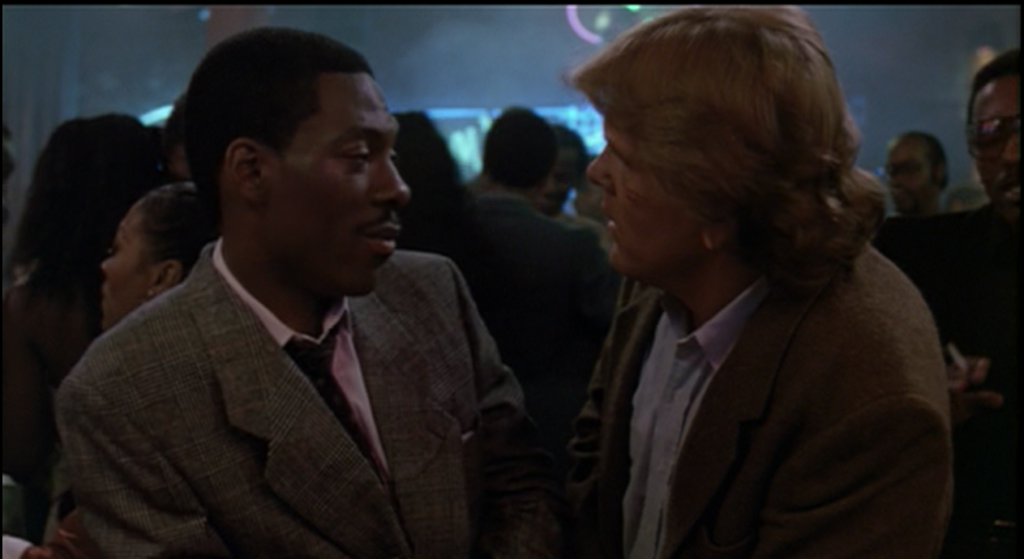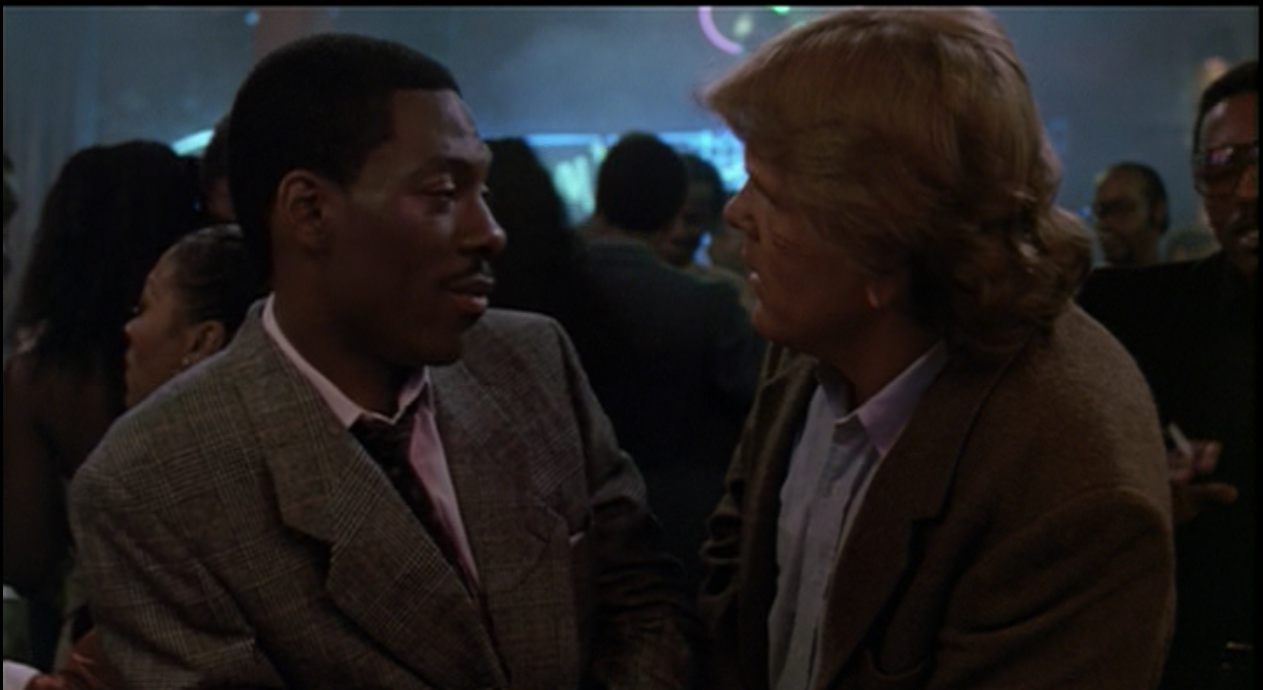Movie Review: 48 Hrs. (1982) directed by Walter Hill
San Francisco police detective Jack Cates (Nick Nolte) isn’t having a good day. He started it with fighting with his bartender girlfriend Elaine (Annette O’Toole). Then he invited himself along when two fellow detectives were trying to do a simple credit card theft/fraud bust (they weren’t too keen on this due to his loose cannon reputation.) Unfortunately, the thieves are actually murderous escaped convict Albert Ganz (James Remar) and his henchman Billy Bear (Sonny Landham). Both the other cops were killed in the ensuing conflict, though one might have survived if Cates hadn’t foolishly allowed Ganz to get his gun. Cates is in hot water, putting it mildly. And the next forty-eight hours of his life are only going to be worse.

Cates learns that Ganz also murdered one of his old gang members and the one surviving associate the police know the location of is in prison. Reggie Hammond (Eddie Murphy), an affable fellow with only six months left on his sentence, is initially uncooperative until he learns what Ganz has been up to. He says he can help, but only if he’s on the outside for a while. At a loss for other leads, Cates forges another officer’s name to get Hammond released in his custody for 48 hours. The clock is ticking. Will they be able to track down Ganz and Bear, satisfy Hammond’s secret agenda, and survive each other’s company?
This was Eddie Murphy’s debut feature film. He was already a successful comedian, but he was not the first or even the fourth choice for the part, and Nick Nolte was the box office star. Turned out Eddie Murphy could in fact act, and recycled some of the Hammond and Cates characters into Detective Axel Foley in his solo vehicle Beverly Hills Cop which made him a box office star in his own right. Nolte does carry the movie for the first twenty minutes before Murphy’s character is introduced, but the film really does improve the moment they’re together.
The movie’s also notable for its time in having a larger portion of its cast, including major characters and the musical acts be black people in a film that wasn’t primarily marketed to the black audience. (This would rapidly change over the 1980s.)
Good: This was one of the first major “buddy cop” (despite Hammond, y’know, not being a cop) movies; two people with very different attitudes/cultures forced to feam up by circumstances, hating each other at first, but slowly growing to respect each other and even perhaps be friends, in the context of a police investigation. It does this very well, and was a major influence on later films in the subgenre. Nolte and Murphy both shine in their parts.
The music is excellent (save a grating rendition of “Roxanne” by Hammond), and the stunts are solid.
Less good: This is one of those “cowboy cop” movies where “rules” and “procedures” just get in the hero’s way, and cops that do try to follow the rules are stupid at best, and an obstacle to justice otherwise. We keep hearing that Cates will file reports, but we never see him do so. Cates routinely skips getting warrants.
A reminder of how things have changed since the 1980s; there’s a lot of casual racism, sexism and homophobia, mostly in the language. (Could you get away with a Confederate flag-themed bar in San Francisco these days?) Cates does apologize a bit for the racist slurs, indicating it’s partly performative as his “tough guy cop” role.
Content note: Violence, mostly lethal. An extended fistfight. Female nudity, offscreen extramarital sex. The aforementioned racism, sexism and homophobia, plus some general rough language. Alcohol abuse.
A mostly excellent movie, with some aspects that have aged badly. Recommended to Eddie Murphy fans who have somehow never seen it, and action fans in general.

